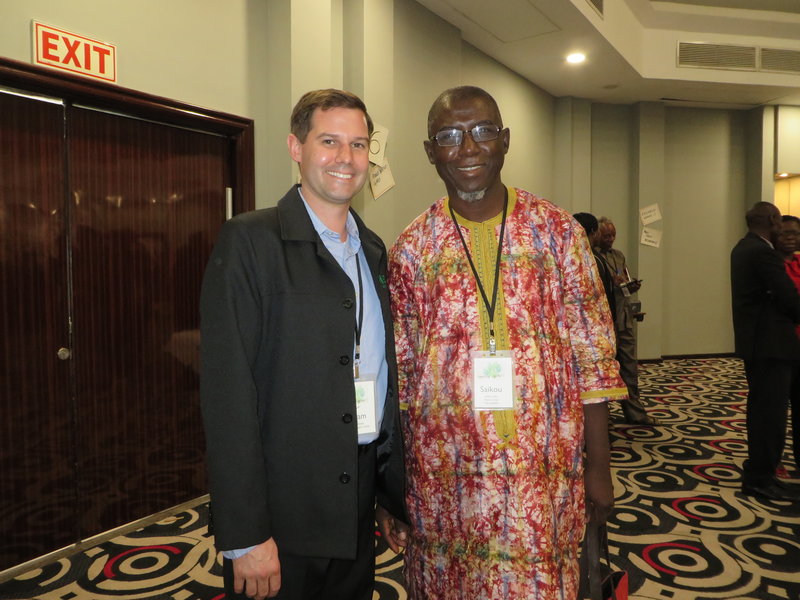The Power of Knowledge and Networking
Published
2017-03-29
Abram (the Director of the ECHO Asia Impact Center) was recently in Lusaka, Zambia, as part of the USAID-funded and University of Illinois managed “Integrating Nutrition and Gender into Agricultural Extension Services” (INGENAES) project. INGENAES is borne out of the Modernizing Extension and Advisory Services (MEAS) project, which helped to re-invigorate global agricultural extension discussion and practice, especially for smallholder farmers in the developing world. ECHO worked closely with MEAS and has gleaned information and best practices from it and INGENAES.

While at the gathering of 170 global participants working in agricultural and extension services, Abram met Saikou, who is from the Gambia and works as a Peace Corps volunteer coordinator and advisor for the Gambia. Saikou attended an ECHO Florida TAD 1 training back in 2014 to gain more knowledge about Tropical Agriculture Development. What he gained from the training was a wealth of options that he could help Peace Corps volunteers implement in the Gambia to improve smallholder farming households’ lives and food security. Upon returning to the Gambia, he began rolling out backyard chicken projects that employ local breeds and low-input feeds for sustainability. He has seen much success with the projects and communities are sharing the approach with each other and adoption is increasing. He credits ECHO, and in particular, the TAD 1 class, as being the inspiration, catalyst, and knowledge piece that makes the project successful.
It is amazing to see the scope of the ECHO-effect around the world! That the Director of ECHO Asia based in Chiang Mai, Thailand, would find a success story from the Gambia while in Zambia is a testament to the power of networking and practical innovative knowledge that ECHO shares with its partners